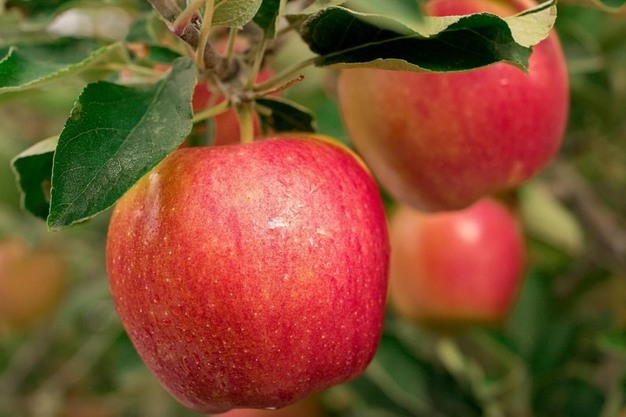This year's crop of apples from Washington, a slightly smaller crop than 2023-2024's, is considered a good quality one that's suitable for export. "Overall shipments so far have been pretty good, and they are keeping up with where we need to be," says Steve Reinholt, export business development for CMI Orchards, LLC. "Though it is still early and we're not completely done with the harvest yet."
However, with next week's presidential election and the continued talk of additional tariffs being imposed on goods, the future of apple exports could be in question. "It's a lot of waiting and seeing what's happening right now. Everybody is concerned though that additional tariffs being imposed will happen again so we're always looking for new marketing options for places to send products that will be profitable for the growers and where we can keep the prices where they need to be," says Reinholt. "We understand that at times a political point needs to be made with trading partners if they're not playing fair, but they often don't play fair back. When these kinds of retaliatory impacts hit, they almost always fall on fresh produce. It's one of the first things that they go after because you can't store it long-term. So if we lose a market, they know we'll scream loud and fast so at times it feels like a bargaining tactic," says Reinholt.
Why apples?
Apples might also be a particular target given when tariffs come up, retaliatory measures might target commodities that are shipped in larger volumes, like apples. Countries imposing them may also factor in whether it grows the commodity itself as well.
As far as apple exports, Reinholt says today, there is still a fair bit of competition out of Europe–particularly Eastern Europe. "It's bleeding over into some of what we'd consider our traditional markets such as India and into Asia. We still compete strongly with quality, and we generally have more consistent products," he says. "We usually hang on to the higher end of the market."

However, in regions that are very price-competitive, some of that market share is being lost. "The tariffs greatly impact that. India and China, which were two markets where we fought the tariffs the most in the last several years, we've seen drastic downturns in the volume there," says Reinholt.
That said, there is still some growth in some regions, such as Vietnam. The industry also has several markets it is working with that have not been opened to Washington and is working on those. "They won't be massive markets but they are markets that appreciate quality so we feel like they will be helpful for us in the long run," says Reinholt.
Concern over imposing tariffs…again
The impact of potentially more applied tariffs looms large for the industry. After all, it was just over a year ago that the tariffs on U.S. apples to India were removed. "We're on par with the world again which is a 50 percent duty so that market has reopened for us," says Reinholt, adding that the market hadn't been completely closed. Shipments of apples were still taking place but at significantly lower volumes.
While that market has rebounded, things have shifted. The Indian market continued to buy apples, but only from other growing regions with less expensive apples. "We still have a long battle ahead of us to get things back to anywhere near where they were," says Reinholt. "It takes years to fight your way back after tariffs are removed if we even get back."
Apple growing has also changed since then. Pre-retaliatory tariffs--which were implemented by India in 2019 following then President Donald Trump imposing tariffs on steel and aluminum from the country--India had been a large consumer of Red Delicious apples. However, since then the variety has become less profitable because domestic demand for it also weakened. The combination of those two factors had growers pulling Red Delicious trees out and that product isn't as readily available anymore–if at all–for export. "So we're having to break that market open again, this time with more expensive product," says Reinholt. "That's the difficult part of these tariffs. They have repercussions, so even if we get them reversed, some repercussions will last forever."
For more information:
Ashlyn Lewis
CMI Orchards, LLC
Tel: +1 (509) 888-3434 (office) ext. 112
[email protected]
www.cmiorchards.com
